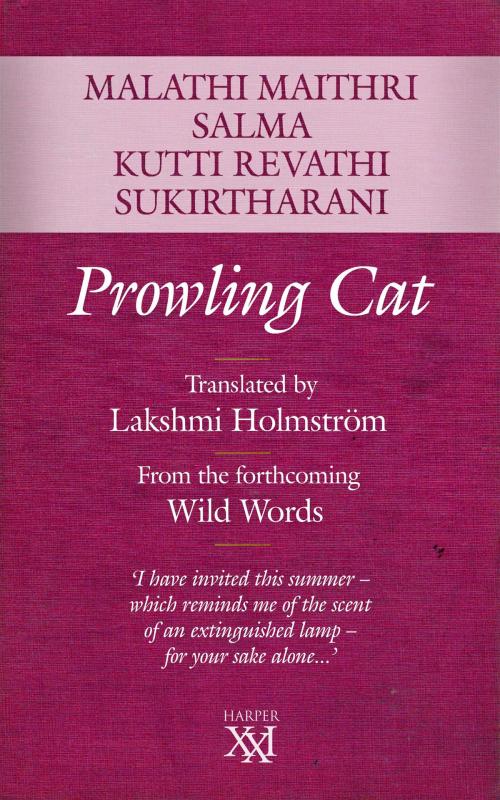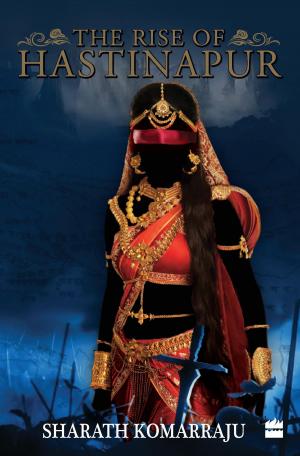| Author: | Malathi Maithri | ISBN: | 9789351368083 |
| Publisher: | HarperCollins Publishers India | Publication: | November 3, 2015 |
| Imprint: | Collins India | Language: | English |
| Author: | Malathi Maithri |
| ISBN: | 9789351368083 |
| Publisher: | HarperCollins Publishers India |
| Publication: | November 3, 2015 |
| Imprint: | Collins India |
| Language: | English |
'The poems of Malathi Maithri, Salma, Kutti Revathi and Sukirtharani so enraged the Establishment in Tamil Nadu, it was even suggested that the poets be burned alive... [Their] poems raise the banner of bold rebellion as they explore the marginalized world of women.'- Paul Zacharia In 2003, a group of men and women, setting themselves up as guardians of Tamil culture, objected publicly to the language of a new generation of women poets - particularly in the work of Malathi Maithri, Salma, Kutti Revathi and Sukirtharani - charging the women with obscenity and immodesty. More than a decade later, a deep divide still persists in the way readers and critics perceive women poets. Tamil women poets have been categorized as 'bad girls' and 'good girls'. The traditional values prescribed for the 'good' Tamil woman are fearfulness, propriety and modesty. Our poets have chosen, instead, the opposite virtues - fearlessness, outspokenness and a ceaseless questioning of prescribed rules. This anthology celebrates the poetry of the four poets through Lakshmi Holmstrom's English translation. 'The poems of Malathi Maithri, Salma, Kutti Revathi and Sukirtharani so enraged the Establishment in Tamil Nadu, it was even suggested that the poets be burned alive... [Their] poems raise the banner of bold rebellion as they explore the marginalized world of women.'-Paul Zacharia In 2003, a group of men and women, setting themselves up as guardians of Tamil culture, objected publicly to the language of a new generation of women poets - particularly in the work of Malathi Maithri, Salma, Kutti Revathi and Sukirtharani - charging the women with obscenity and immodesty. More than a decade later, a deep divide still persists in the way readers and critics perceive women poets. Tamil women poets have been categorized as 'bad girls' and 'good girls'. The traditional values prescribed for the 'good' Tamil woman are fearfulness, propriety and modesty. Our poets have chosen, instead, the opposite virtues - fearlessness, outspokenness and a ceaseless questioning of prescribed rules. This anthology celebrates the poetry of the four poets through Lakshmi Holmstroms' English translation.
'The poems of Malathi Maithri, Salma, Kutti Revathi and Sukirtharani so enraged the Establishment in Tamil Nadu, it was even suggested that the poets be burned alive... [Their] poems raise the banner of bold rebellion as they explore the marginalized world of women.'- Paul Zacharia In 2003, a group of men and women, setting themselves up as guardians of Tamil culture, objected publicly to the language of a new generation of women poets - particularly in the work of Malathi Maithri, Salma, Kutti Revathi and Sukirtharani - charging the women with obscenity and immodesty. More than a decade later, a deep divide still persists in the way readers and critics perceive women poets. Tamil women poets have been categorized as 'bad girls' and 'good girls'. The traditional values prescribed for the 'good' Tamil woman are fearfulness, propriety and modesty. Our poets have chosen, instead, the opposite virtues - fearlessness, outspokenness and a ceaseless questioning of prescribed rules. This anthology celebrates the poetry of the four poets through Lakshmi Holmstrom's English translation. 'The poems of Malathi Maithri, Salma, Kutti Revathi and Sukirtharani so enraged the Establishment in Tamil Nadu, it was even suggested that the poets be burned alive... [Their] poems raise the banner of bold rebellion as they explore the marginalized world of women.'-Paul Zacharia In 2003, a group of men and women, setting themselves up as guardians of Tamil culture, objected publicly to the language of a new generation of women poets - particularly in the work of Malathi Maithri, Salma, Kutti Revathi and Sukirtharani - charging the women with obscenity and immodesty. More than a decade later, a deep divide still persists in the way readers and critics perceive women poets. Tamil women poets have been categorized as 'bad girls' and 'good girls'. The traditional values prescribed for the 'good' Tamil woman are fearfulness, propriety and modesty. Our poets have chosen, instead, the opposite virtues - fearlessness, outspokenness and a ceaseless questioning of prescribed rules. This anthology celebrates the poetry of the four poets through Lakshmi Holmstroms' English translation.















